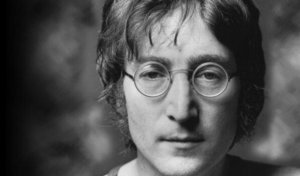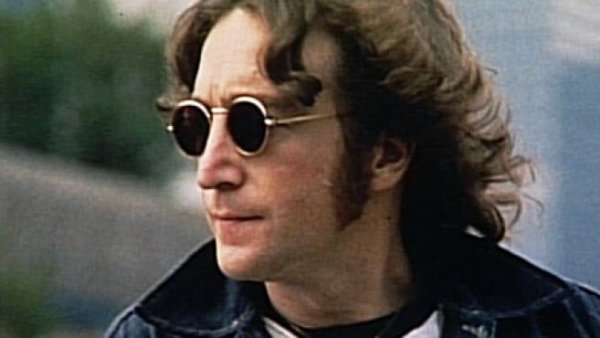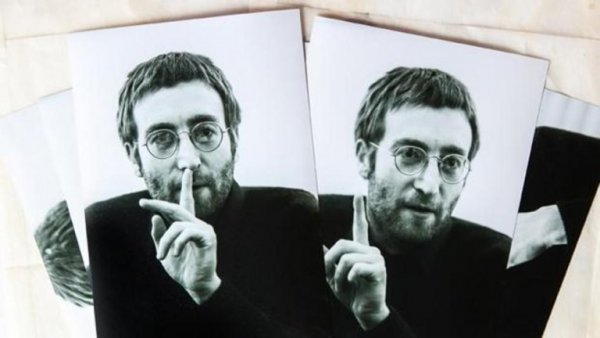John Lennon and Depression: The Songs No One Understood


Written and verified by the psychologist Valeria Sabater
John Lennon spent a lot of his life crying out for help. He did it in the 60’s with the song “Help!” and again with one of his last, most prophetic compositions: “Help Me to Help Myself.” The most idealistic, revolutionary, and inspiring member of The Beatles hid a traumatic, dark, yet inspiring side of himself.
They say that sadness is a powerful emotion, the fire behind the most memorable artistic creations in history. You can see it, for example, in Janis Joplin. She was a singer with a powerful voice, but her early death left us with the memory of a sad young woman, who oddly enough helped the world be a little happier.
And The Beatles did the same thing, but in a much more universal way. The musical, cultural, and social impact they had was huge. But not many people stopped to see the sadness hiding behind the group’s most intellectual member: John Lennon.
Anyone who knew him well knew there was something lurking inside him. It was a suicidal, devastating shadow that led him to personal isolation that lasted almost five years.
Strangely enough, one of the last songs he wrote before Mark David Chapman murdered him in the Dakota building’s entrance gave evidence that he was making his way out of that dark hole, and looking for a second chance. He was full of hope and starting to believe in himself again:
“Dear John
Don’t be hard on yourself
Give yourself a break
Life wasn’t meant to be run
The race is over, you’ve won.”

John Lennon and his eternal cry for help
When John Lennon wrote the lyrics to the song “Help!” the rest of the group was a bit surprised, but no one thought much of it at the time. It sounded good, and it was part of one of their best-selling albums.
It even ended up being the title of a film they would make in 1965. But those lyrics contained the stress Lennon was dealing with and the external pressure he felt because of things that were moving much too fast for him to process.
Years later, Paul McCartney was interviewed by Playboy magazine where he said that at the time he couldn’t see the what his friend and band member was going through.
Lennon cried out for help, but he was living in a world full of people who couldn’t hear. In the song, he talked openly about his insecurity, his depression, and his need for someone to help him, for someone to help him get his feet back on the ground.
John Lennon’s trauma
There are people who say that part of his lifelong anguish and eternally hidden sadness might have come from his childhood. His father was a sailor who left early on. His mother also left him for a time, and she had him stay with his aunt and uncle.
Years later, just when he was making up with his mother, he witnessed her death. A drunk policeman ran into her with his car, instantly killing her. It had a huge impact on him, and he carried it with him for the rest of his life.

His biographers say that he invested himself so deeply into music in order to get through the tragedy. In the end, his passion for the art came from his mother. She was the one who showed him how to play multiple instruments. She was the one who gave him that fascination. And it was to her that he dedicated one of his most intimate songs: “Julia.”
John Lennon and primal scream therapy
When The Beatles broke up in 1970, all Paul McCartney, George, and Ringo had to do was make some relatively catchy albums and they’d keep being successful. But John Lennon couldn’t follow that path.
The world was full of voices, movements, injustice, and social crossroads that he felt very deeply. It enraged him. He butted up against political hypocrisy and attacked the young fans who idolized him and other rock stars.
In one of his albums he very rawly expressed his deepest thoughts during this new stage: I don’t believe in magic…I don’t believe in Elvis…I don’t believe in The Beatles…The dream is over…I was the walrus, but now I’m John…”
Making music didn’t motivate him anymore. It didn’t bring him joy or satisfaction. It was all just a business in his eyes and he was feeling trapped, imprisoned in a box where he destroyed himself through alcohol and LSD.
But something not everyone knows is that after he realized that neither music nor meditation nor drugs could turn off the bitter sadness inside him, John Lennon started to see psychotherapist Arthur Janov. This well-known psychologist developed primal scream therapy, a strategy meant to treat psychological trauma through primal screams and psychodrama.

This discipline, like a lot of other cathartic, expressive therapies, focuses on the idea that we can bring all our repressed pain to the surface and solve it by acting out the problem and expressing the pain that comes up because of it.
John Lennon used this therapy for many years, with good results. It went on long enough that one of his last songs was a direct result of the therapeutic journey that brought him to wonderful internal reconciliation.
The title of the song was “Mother.”
This text is provided for informational purposes only and does not replace consultation with a professional. If in doubt, consult your specialist.








